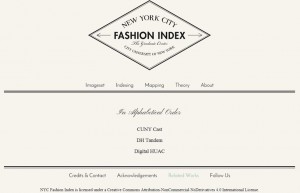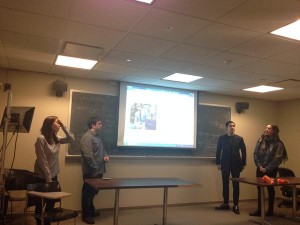I started off Week 2’s readings with the belief that I belonged to the ‘hacking’ group. It has always seemed to me that actions speak more eloquently than words do; if something existed, that, validated its presence, there was no need to probe further. There was also social conditioning – probing was considered the prerogative of the affluent or the premise of the indolent; only those who had no need to labor (manually or mentally) were free to theorize. Then, while reading Tim Sherratt’s ‘It’s All About the Stuff: Collections, Interfaces, Power, and People’, I found myself agreeing that every act(creating/building/hacking), in fact, the very structure (physical, social, material, etc.) of our lives is instigated by the questions asked by those before us and with us. Probing questions and their motivations, theorizing in general, seems essential for interacting with information and shaping knowledge.
To develop from Geoffrey Rockwell’s contention that DH is a craft, if DH as a craft is a way of doing/bringing our ideas to life, then theory pertaining to DH is the thought that arises post production. It is the formal assimilation of ‘knowing’ into a body of knowledge for later use. Thus DH projects are the knowledge base from which theory springs. When a large body of projects come into existence, invariably, theorizing begins; I believe DH has reached a stage where the knowledge base is large enough to support strong theorizing. Once a discipline reaches such a stage, the ‘yacking’ and ‘hacking’ begin to coexist and feed each other. Each will become strong enough to question the other and even perhaps proclaim independence of the other.
The ‘hacking vs yacking’ debate continues to exist because of the separation of academe from ‘industry’, where technology workers ‘craft’ projects into existence away from the academic spotlight. When scholars make ‘commercial/industry-driven’ projects their objects of exposition, they do so in the company of and for the consideration of their peers, quite oblivious of the ‘craftspeople’. Self-initiated scholarly projects are just as insular, carried out as they are with graduate students and ‘alt-ac’ staff. In my opinion, the values of DH (openness, collaboration, diversity, collegiality and experimentation), will serve it best when not limited to the field but rather extended to the ‘external’ world as well. Scholarship which collaborates with ‘craftspeople’ in the quest for knowledge advancement is an ideal Digital Humanities can aspire to. In this sense, I would like to see more of ‘hacking + yacking’.



